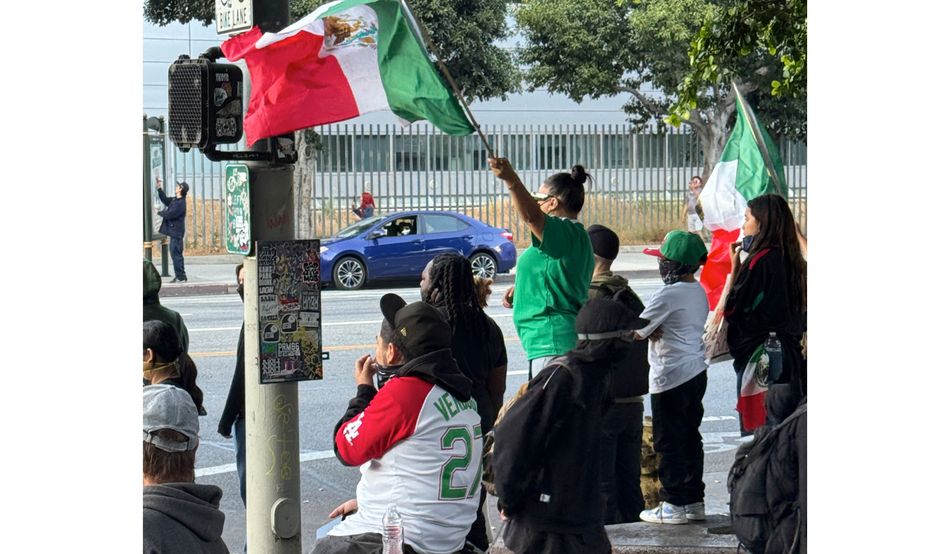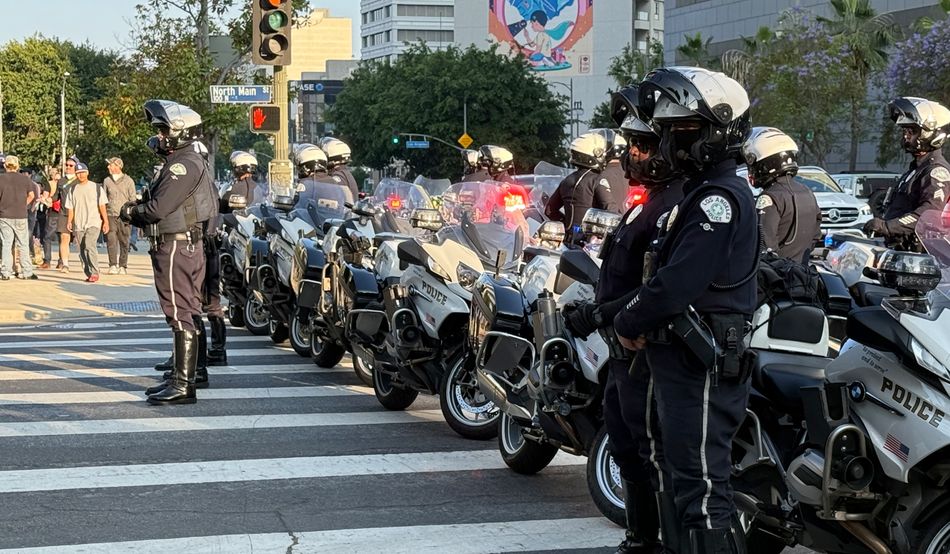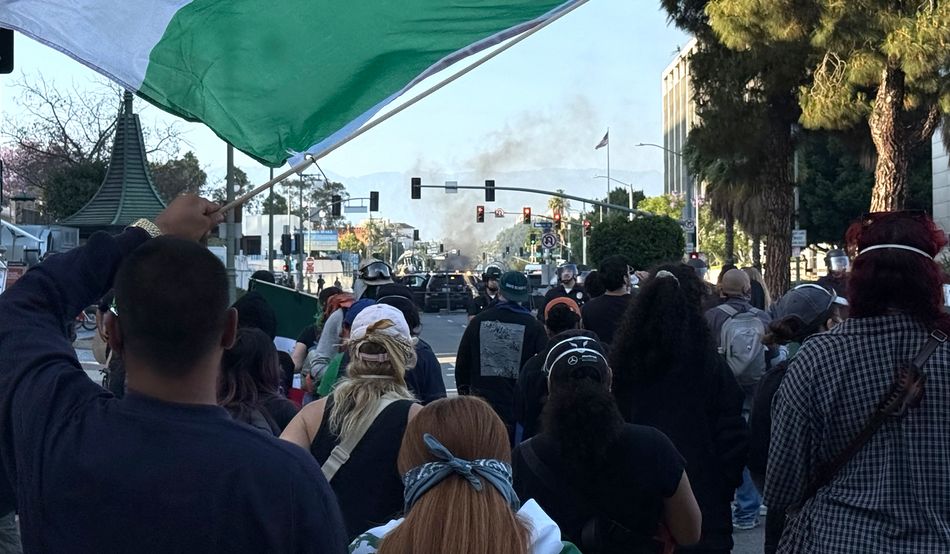Things fray before they fall apart. I’ve been in downtown Los Angeles, the site of the protests against the government’s immigration raids, since last Thursday—and I’ve seen a whole lot of fraying. The streets here, in the biggest city in the fifth-richest state of the wealthiest country in the world, are awash with drugs and homelessness. The frontages of grand old buildings from the 1950s are boarded over. Tarpaulin shelters line most sidewalks. The overriding smell is of piss.
I’m here for a video games festival, which means that I’ve spent a lot of time with headphones over my ears and a controller in my hands. That, let me assure you, is a bubble that’s hard to perforate, and yet the protests have been breaking through one pinprick at a time. First it was the convoy of fire trucks that passed by a couple of nights ago. Then it was the growing cacophony of police sirens and helicopter rotors in the background. And yesterday the bubble was finally burst for good: about a mile from the festival site, framed perfectly by its exit gates, was a tall, thick column of black smoke. It rather drew the attention.
So I walked towards that smoke in as straight a line as I could manage, through cardboard favelas that ought to shame every politician in America. As I got closer, the sound of the overhead police and news channel helicopters became more insistent. On the ground, the swell of people moving in the same direction became more insistent too. Many of them were waving Mexican flags, for that is the largest ethnic group in LA—and one, among several, that stands to suffer from the new workplace deportation raids being implemented by US Immigration and Customs Enforcement (ICE). Others carried placards reading “ICE is KKK” and “Fuck ICE”.
Only a few blocks out from the source of the smoke my phone suddenly started wailing. It was an automated warning message from the police: “LAPD: Protest activity DTLA at 101 Fwy/Alameda. Unlawful assembly declared. Use caution.”
The 101 Freeway is where the fiercest protests have been taking place and abuts streets where some of the city’s strange driverless taxis have been torched—hence the smoke. But I didn’t need to use any caution, since the LAPD had already cordoned off the entire area. We—that is, the crowd of flag-waving, placard-bearing protesters and I—could only go so far. Just visible beyond a ring of heavily armoured police officers was the worst of it: burning vehicles, hundreds of masked protestors causing thousands of dollars of damage and more cops doing battle with them.
The ring-forming police were unmoved by my media credentials for the games festival, which I flashed in an attempt to go further. So, instead, I spoke to some of the peaceful protesters around me, none of whom wanted to be named or recorded. “I just keep thinking of a kid coming home from school and his dad’s not there anymore,” said one middle-aged man about the new wave of deportations. “I have a son. We can’t stand by and watch this happen.”
Although the crowd was mixed—young, old, different ethnicities, individuals, couples, entire friendship groups—there was a uniformity to their responses. All despise Donald Trump, of course, but also the entire “system” that, over years and through numerous political leaderships, has left them “vulnerable”. All criticised the protestors who have destroyed property and confronted the police; “It makes it harder for us.” And all doubted whether anything would change as a result of these protests, but felt that they needed to protest anyway. “There comes a time when you’ve just got to speak out,” a woman told me. “Even if it’s just to support your own community.”
But what was really striking, at least to an outsider like me, was how frequently history was invoked—specifically the fact that, before the Mexican-American War of 1846–1848, Los Angeles belonged to Mexico. The implication is that LA’s Mexican population “got here first”, as one of the protesters put it, and is effectively indigenous. I couldn’t help but notice the slogan on a girl’s T-shirt as I left the protests: “We didn’t cross the borders. They crossed us.”
Which is to say, this stuff goes deep. So deep, you suspect, that there is no immediate solution to the current state of conflagration. Indeed, as I walked back to the apartment block where I’m staying, five police cars sped past and split in four different directions as the protests spread across the city.
When I got back, the smoke now invisible against the night sky, I decided to go up to my building’s roof and watch from there. Helicopters still hovered around the 101 Freeway, but there was now also a police helicopter further away, shining a spotlight on another part of town. Then, suddenly, a quite loud bang. A component popping in one of the smouldering autonomous cars? Someone letting off a firework? Or something altogether worse? I went back downstairs and straight to my news apps.















